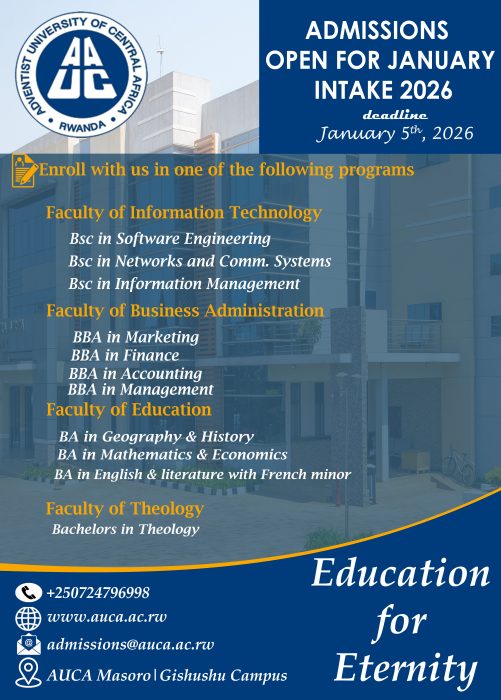Description of Foundation Modules
RELT 9111 Philosophy of Christian Ethics 10 Credits
This Module surveys Christian philosophy and beliefs in accordance with the Holy Bible. It covers the wholistic philosophy of education which encompasses the development of physical, spiritual, social, and intellectual aspects, the nature of man, the law of God, and Christian life. In addition, the concept of Business philosophies and values was passed from the early management thinkers: Tuz Sun, Machiavellian, Cato the Elder, Code of Hammurabi, Peter Drucker, and some of the 20th century thinkers. The aforementioned are infused with the philosophies of Kant, Plato, Aristotle, Socrates, Jeremy, Thomas Aquinas, and Gandhi etc.
STAT 9112 Applied Statistics 10 Credits
This Module centers on a study of statistical procedures and techniques with particular emphasis on treatment and analysis of educational and psychological data. The following topics are discussed: need for statistics, statistical methods, frequency distribution and their graphic representations, statistical notations, mean, mode, median, standard deviation, measures of variations, skewness and kurtosis, scales and measurements, probability and binomial distribution, the normal curve. Linear regression in terms of simple regression and multiple regressions, post estimation tests, Beta value, T- tests, F-tests and ANOVA, P-value and individual coefficients of determination under multiple regression models. All of these statistics are to be taught using statistical tools such as Statistical Product and Service Solution (SPSS) for primary data treatment, E-views for Time Series Data and STATA for Panel Data and their interpretation as far as research and thesis writing are concerned.
REMT 9113 Advanced Research Methodology 10 Credits
This Module examines principles that govern the methods and methodology of research, planning and carrying out and reporting researches in a professional way. It uses scientific research methods to solve the research problem. The format and style of research, the statistical measures, types, designs and sampling in research and application of statistical software packages are also covered. The student will learn various stages of the research process and prepare a research proposal or project proposal. Students will put to use all the research skills acquired and needed for personal research projects in the graduate studies. Extensive business or educational research, written reports, and oral presentations will be required in the development of project, thesis, and a case study. In addition, students must demonstrate the ability to conduct independent rapid and intelligent research work in an increasingly complex and changing world.
HREM 9114 Human Resource Management 10 Credits
This Module covers human resource management (HREM) history, functions, theories and practices from a strategic perspective. It focuses on how to attract, recruit, maintain and strategically develop human resources in order to optimize stakeholders’ satisfaction. The concepts of human capital, knowledge management, and organizational learning are covered. This Module further explores other elements of supervision, emotional intelligence, human and social capital, and leadership that are crucial factors in managing people in the workplace. Using a case study format, the Module examines various approaches to job development/enrichment, quality of work life, motivation, evaluation, recruitment, research, and supervision.
Core Module s in Masters of Business Administration
- Core Module s/modules (60 credits)
| Code | Module | Credits | Module Credit | Contact Hour | SDL | Total |
| BUAD 9121 | Management Information System | 3 | 10 | 45 | 55 | 100 |
| BUAD 9122 | Operations and Total Quality Management | 3 | 10 | 45 | 55 | 100 |
| BUAD 9123 | Advanced Financial Management | 3 | 10 | 45 | 55 | 100 |
| BUAD 9124 | Managerial Economics | 3 | 10 | 45 | 55 | 100 |
| BUAD 9211 | Quantitative Techniques and Simulation | 3 | 10 | 45 | 55 | 100 |
| BUAD 9212 | Strategic Management & Modeling | 3 | 10 | 45 | 55 | 100 |
| Total | 18 | 60 | 270 | 330 | 600 |
Core Modules
It is a series or selection of Module s that all masters’ students are required to complete before they can move onto the next level in their education’s specialization. Each of these modules is carefully put together to provide the fundamentals in order [to prepare] the student for the specializations which are offered in the second half of the program.” These core Module s/modules are necessary for students to be able to achieve greater understanding of later, specialization Module s. Employers will expect MBA graduates to be ready, from day one, to add value to their organizations.

